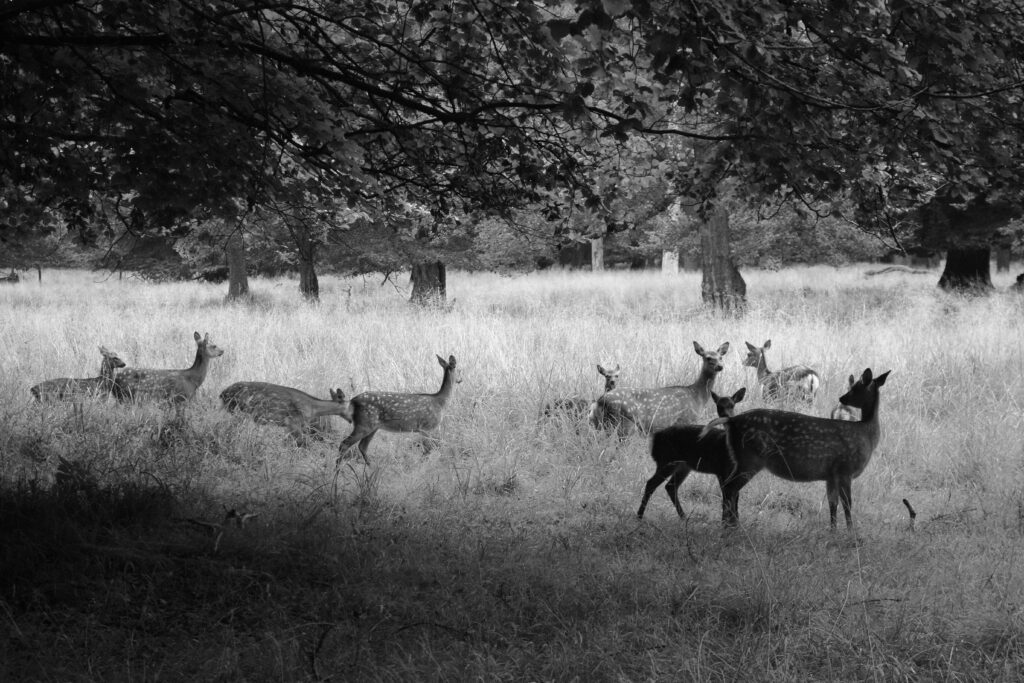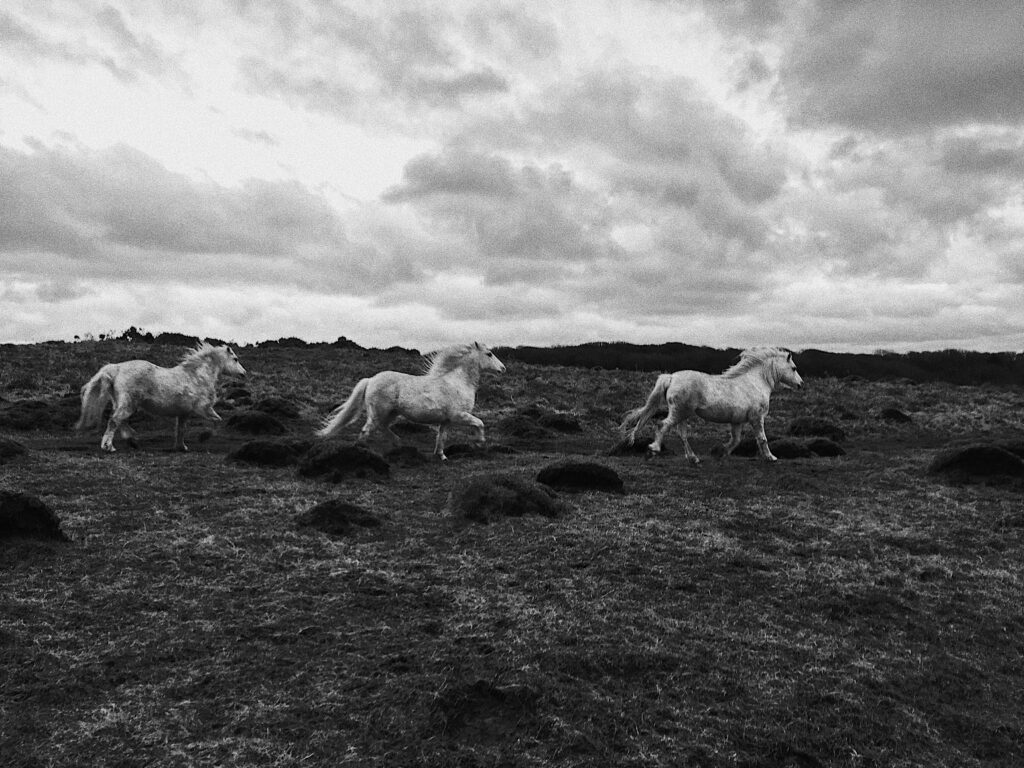TT Journal, ISSUE 6, September 2023
By Larissa Lily
Years ago I taught creative dance to 9 year olds. Already their schooling had introduced them to ideas of what success and being good at something meant, and often these had to do with getting the correct answer and being the fastest. Creative dance lessons don’t teach children dance technique or specific skills, rather they present problems to be solved and ask the children to come up with their own solutions. In one such task I asked the children to find ways to move as slowly as they could as they made their way across the room. Off they went. Three boys leading the pack, doing what they were used to doing in order to win any race: going fast. Half way across the room it occurred to them that their method was not working. Being slow would certainly mean reaching the other side of the room last, not first as they were currently on course to do. This presented a dilemma. Winning was important for these boys, but in this game the normal rules of winning no longer applied. They had to think of something else. Without managing to quite slow down the pace, they resorted to taking very small steps instead. And so they shuffled in tiny, very quick steps, surprised that still they were not slowing down.
The point of the exercise was not to win or be the slowest or reach the end of the room the last. It was simply to explore ways to move slowly. At the same time, by presenting requirements that were in conflict with the idea of having to be the fastest in order to be good at something, I aimed precisely to disrupt, to introduce another perspective, and the possibility of simply exploring something because it might be interesting to do so for the sake of exploration alone.
So much of playing and why it is interesting as an activity is this meandering nature of exploration, the total immersion in problem solving, or building something, guided only by curiosity and finding out “what happens if…” rather than following a road map with a predestined path and a set destination. It is the very uncertainty that makes the process interesting, the dwelling in possibility before anything is resolved, and children are masters at this before they are educated out of it.
Playing. Exploring new ways. Dwelling in uncertainty and entertaining possibilities.
Problem solving. Whatever you want to call this process, it is an activity that certainly takes time. Undefined time lost in the flow of the activity, where time itself seems to become irrelevant. Spending time is precisely what makes the activity so rewarding. Something about the openness of taking your time to explore – where you don’t know where you will end up, how long it takes to get there and what you will discover – takes you beyond time. And what one encounters is often more than can be quantified, easily measured, or articulated according to the metrics so valued by our productivity obsessed world. Beyond learning a specific skill, play grows one’s capacity for imagining, questioning and curiosity, and the tenacity to persist in an uncertain pursuit that opens one up to discover something new.
Schools strive to teach children that it is important to know, to get the right answer and be efficient. And then it comes as a surprise when students generate school work by ChatGPT? Since there can only be one right answer, there is no time to waste in exploring some potential other answers or entertaining new ideas. And since they have learned that the goal of education is to produce the right answer the fastest possible way, then this is something AI language models excel at. It could almost be argued that in this case the students solved the problem truly in the most efficient manner. We have failed to teach them the value of and enjoyment in creative problem solving, which requires spending time with the task. We have taught them that only the correct answer matters and is rewarded, and in ChatGPT they found just the tool to deliver that.
Perhaps this is a good time to re-evaluate the emphasis we have placed on all that is efficient and productive. As Rutger Bregman so brilliantly points out, you cannot make history classes or symphonies better by performing them faster in the name of efficiency. “Some things in life, like music, resist all attempts at greater efficiency…a violinist can’t pick up the pace without spoiling the tune.” (2016: 167)[1].
With my old group of 9 year olds in creative dancing, it took me nearly 3 months to get them out of the habit of wanting to complete the task as quickly as possible, and asking whether their solution was the right answer. Three months to get them to trust that in this class you get to play and that the point wasn’t coming up with the answer as fast as one could, but spending time exploring the problem so as to see it from different perspectives and explore new ideas. In other words, to expand one’s thinking and capacities. And perhaps to discover that these are actually quite fun and enjoyable ways to spend time, occupy yourself and collaborate with others.
There was one day, when suddenly no one came to ask me about the right answer. Instead they threw themselves at the task with confidence and curiosity. We had finally left comparisons and insecurities behind. There was joy, enthusiasm, energy and focus in the room. Focus on the task itself, rather than being distracted by how well one was doing. They were engaged in creative problem solving and while at it, they kept going. Finding one solution made them even more eager to try what else could be possible.

Eventually I was let go as a creative dance teacher for not teaching the children any measurable skills. I remembered the almost tangible increase of joy, enthusiasm and confidence in the room that day they had stopped to look for the right answer. While I couldn’t measure it, I could feel the almost infectious delight in exploring creativity. These aren’t things that can be measured as such and I had failed to make a compelling argument to make the case for spending time developing these capacities. And so I was replaced by a hip hop teacher.
Now I find myself historically in a situation where developing creative capacities and playing has never been more important. And in many ways, never more threatened. AI can generate endless stream of content, new variations of the same. It will never tire and it won’t suffer from a writer’s block. It doesn’t concern itself with questions such as: is what I’m generating meaningful to someone? Does it make someone feel thankful to be here? Does it make them feel alive? Or does it just fill their already noisy world with more noise and more distraction, but with much greater efficiency?
It’s easy to be seduced by the effectiveness of AI language models, but the more we choose to outsource content creation to them, the more we risk making ourselves completely redundant in the process of generating anything at all. These tools are sold to us on convenience, and on the promise of increased productivity, efficiency and profits. AI language model tool can generate content so much faster than a human, but is this really what we want simply because it can generate several pages in less than a minute, when one slowly crafted sentence expressed from the heart can say so much more?
Consider The infinite Conversation project[2], an AI generated, never-ending discussion between Werner Herzog and Slavoj Žižek. The content is entirely AI generated and random, and besides for being based on how Žižek and Herzog sound and how they may have spoken in the past – the content of this conversation has nothing to do with their opinions and could be said to be mostly nonsensical. Beyond the novelty of the project and some entertainment factor, there is no meaning that the project creates.
And so what is a more meaningful world to live in – to participate in the creative process, or to consume an endless cacophony of meaningless content created very efficiently and tirelessly by machines? If we stop exploring the potential of our own creativity now that machines can generate content so much faster, how will we fare in the end? What will happen to our capacities and talents, left unused, or deemed worthless in a world that values efficiency above all else? I don’t fear that an AI language model per se can replace what I do as a creative, meaning making individual. I fear that we lose sight of the value of human creativity. That quantity overrules quality and the value of several pages per minute overshadows one imperfect sentence spoken from the heart. I fear that if we stop developing our creative capacities, we lose some of our humanity as we increasingly model ourselves on machines. “The real danger” as the real life Žižek warns, “is not that people will mistake a chatbot for a real person; it is that communicating with chatbots will make real persons talk like chatbots.”[3]
I can but wonder – why would we be so quick to want to replace ourselves? Yes humans are slow, but we are also spontaneous and geared to seek and create meaning. As Kevin Kelly emphasises, “humans excel at wasting time, experimenting, playing, creating and exploring. None of these fare well under the scrutiny of productivity”[4]. And yet, the greatest artworks that I often find inspiring, meaningful and beautiful, were born precisely of such “time wasting”.
In the end it comes down to what we value and hold meaningful in life. There is so much talk about being transhuman, or beyond human, these days. At the same time we haven’t even fully explored what it means to be human – our full capacity as meaning making, creative and unpredictable beings exploring the world and creating beauty. Beauty that can be found in the playful engagement with what it means to be alive.

All images are courtesy of the author.
[1] Rutger Bregman (2016) Utopia for realists – the case for universal basic income, open borders, and a 15-hour workweek. Amsterdam: The Correspondent.
[2] https://infiniteconversation.com/
[3] Slavoj Žižek, Mar 23, 2023 https://www.project-syndicate.org/commentary/ai-chatbots-naive-idiots-no-sense-of-irony-by-slavoj-zizek-2023-03
4] Kevin Kelly, “The Post Productive Economy”, The Technium (January 1, 2013).
Larissa Lily is a writer and thinker with a background in contemporary dance. She is one of the last remaining survivors of the digital zombie apocalypse in Norway and still occasionally teaches movement and dance until she is replaced by an app or a robot.
